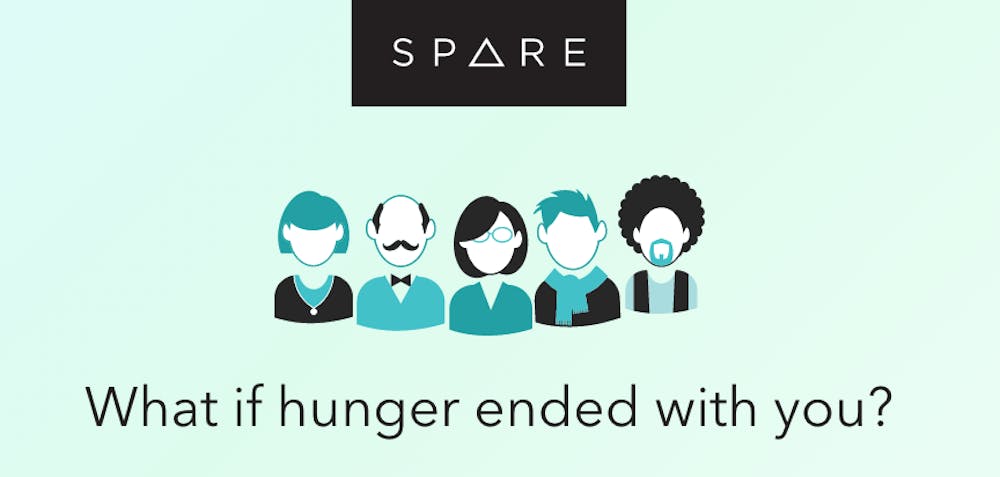Most customers are going to leave a tip at a restaurant or a bar, especially if the service is good.
A new app is hoping to turn some of that extra spending money into meals for the hungry in New York City.
Spare is an app that connects to users’ bank accounts and rounds up their bar or restaurant tab to the nearest dollar amount – donating the extra money to causes like Food Bank for New York City, City Meals on Wheels or New York City Rescue mission.
It works like this: If you spend pay $24.33 on a meal – $20.33 on the food meal and $4 on a tip – the app will round the price of the meal up to $25, and donate that last 77 cents to help close the meal gap. The app will only do so with money spent at a restaurant or bar and will only round up to the nearest dollar.
The app can currently only be used in New York City but Andra Tomsa, the founder and CEO of Spare, wants to eventually expand the app’s use to other cities.
Between 2012-14, 1.4 million people in New York City lived in households that lacked sufficient food, according to the New York City Coalition Against Hunger. Thirty-three percent of UB students are from the New York City and metropolitan area, according to SUNY data from 2013-14.
“I know that people will spend money at restaurants and bars even if they don’t have it, so rounding up on an indulgence is the most effective way,” Tomsa, who worked as a bartender for seven years, said.
Spare launched a few months ago and has already reached 7,000 users. Its goal is to reach 800,000 – the number needed to completely close the meal gap.
Tomsa thinks that her method is more effective because it creates a continuous process, rather than a one-time donation. Though there are millions of fundraising possibilities throughout New York State, many don’t take the time to donate to the causes.
The user can also track their impact and see how many meals they’ve provided – 25 cents is one meal and they can gather rewards if they round up a certain amount. Three roundups mean a free drink or other reward at the restaurant or bar the user frequents the most.
“I wanted to create something that’s really easy,” Tomsa said. “The user hardly needs to do anything yet still makes a difference and receives benefits in their community. If they round up three times, that’s less than $3 that can get them a free drink that may be work $8 or $9.”
Tomsa also hopes to expand the idea to other cities with such a food deficiency. She initially got the idea looking at the markets overseas, seeing the poverty that struck so many cities there and wanting to create an easy solution.
She hopes that because the app is so easy to use that by starting in her local market of New York City, she can ensure success and refine the product.
O’Brien Welsh, a senior political science major, thinks the idea could make a real difference.
“If a significant number of New Yorkers use this app by simply rounding out their bills, I think the spare change concept will close the food gap drastically,” Welsh said. “I think it’s an amazing concept. So many people use their smartphones so it’s right at your fingertips.”
Ease and accessibility were both important factors in the development of the app in a time where the app store is a competitive market.
Tomsa, who is a mother, emphasizes that she doesn’t feel the loss in her bank account. The amount taken out is so small and it isn’t an every day charge, which is what makes it easier to donate in this way.
“The only thing I would be worried about would be donating more money than I could afford but it sounds like it’s such a small amount it wouldn’t really effect me,” said Kristen Gehnrich, a junior business major. “I would try it and see if it makes a difference.”
Tori Roseman is the senior features editor an can be reached at tori.roseman@ubspctrum.com





